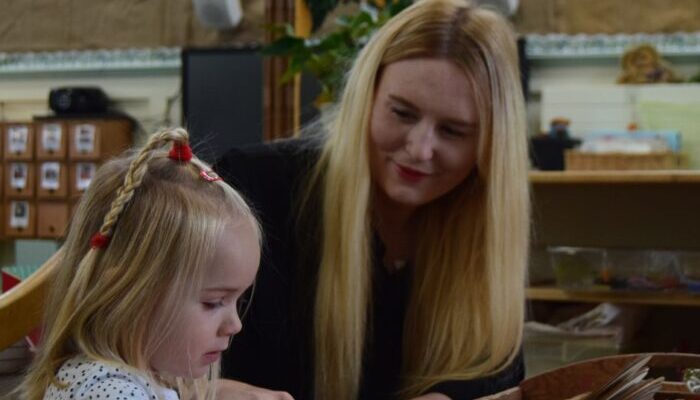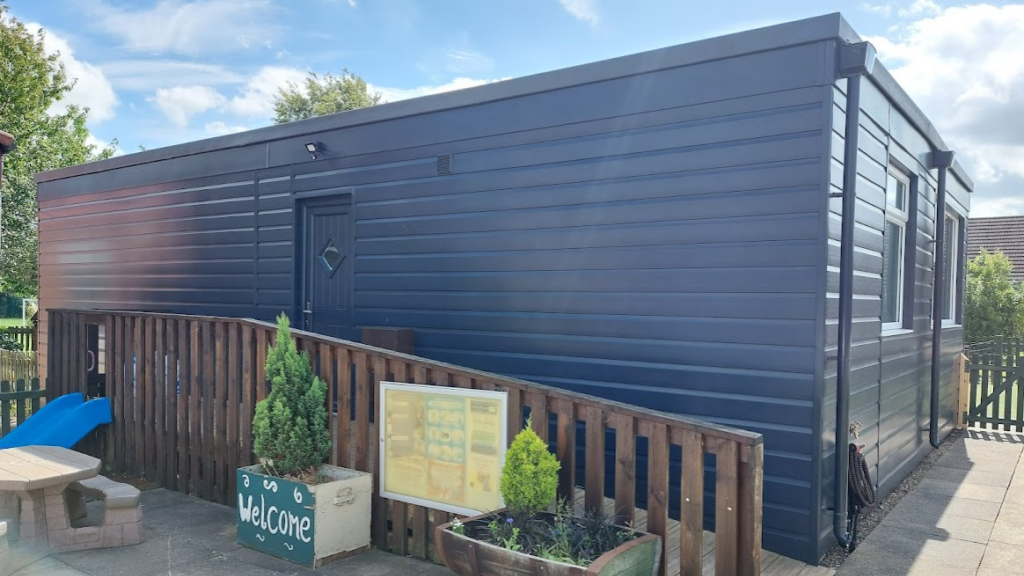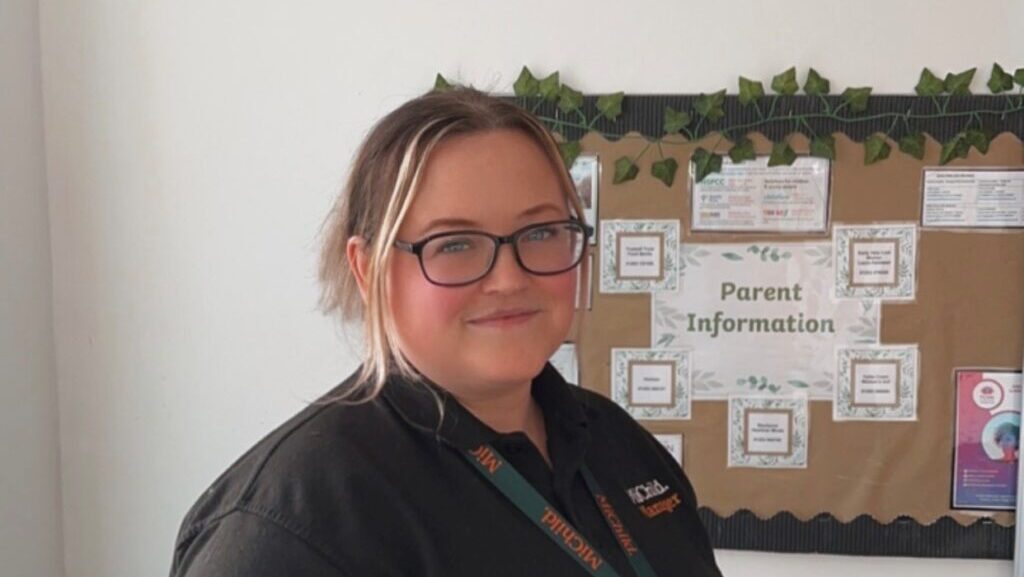In our series showcasing the sector’s nursery managers, we find out about Catherine Jackson, owner and manager at Wise Owls…
Stronger together
Stronger Practice Hubs launched in November 2022 and are government-funded until late 2024. Charlotte Goddard finds out how nursery managers can access support before the funding runs out

All across the country early years leaders are sharing expertise through free training, resources and network events. England’s 18 Early Years Stronger Practice Hubs are part of the government’s post-Covid early education recovery package, which also includes the Experts and Mentors programme, the National Professional Qualification in Early Years Leadership (NPQEYL) and the online Professional Development Programme.
The National Children’s Bureau (NCB) is the government’s delivery partner for the scheme, recruiting settings to run the Hubs and overseeing quality. The Hubs aim to deliver peer-to-peer support (“doing with, not doing to”, says Gill Holden, principal officer at NCB) specifically tailored to local need, and are run locally by groups of childminders, private, voluntary and independent settings, and maintained nurseries. Hubs work closely with local authorities, to avoid replicating any support that already exists.
So, what can a manager gain by connecting with their local Stronger Practice Hub? Free, evidence-based training for themselves and their team is a definite draw.
“Hubs are also able to help a nursery manager to navigate different training options,” says Ellie Suggate-Francis, assistant director of the NCB’s Early Childhood Unit. “There is a lot of CPD out there and Hubs can link managers to high-quality training and help them make the decision about what might be suitable for them.”
Hubs offer a growing range of resources which managers can download for themselves and their teams. “The Hubs are all really different, so what is on offer from one Hub may be different to another,” explains Holden. “But there are recordings of webinars that have been created so managers can use them in a staff meeting, for example.”
Some have set up leader and manager networks to provide peer support. “For early years leaders and managers it can be a bit of lonely role, so it is beneficial to share successes and challenges,” says Holden.
Most Hubs also provide resources and support focused on working with children with SEND, which managers can access themselves or point their Senco towards. As well as providing tailored resources to meet local need, Hubs offer bespoke support, responding to individual queries and requests. Hubs are assessed on how quickly they respond to queries as well as the quantity of resources they create, including webinars, newsletters, blogs and training.
“The feedback we are getting says the network support is one of the most appreciated elements,” says Suggate-Francis. “It is not only about linking with settings that are similar to yours but also being able to draw on the expertise of different settings – maintained nurseries drawing on the expertise of childminders and the private sector, and vice versa.”
There is a close relationship with educational charity the Education Endowment Foundation (EEF), which supports Hubs to create evidence[1]based resources and provides a range of professional development programmes for Hubs to include in their local offer. In return, Hubs are helping the foundation recruit settings to test and evaluate the impact of a range of childhood development programmes, helping to grow the evidence base for future practice.
The East Midlands Early Years Stronger Practice Hub is run by Pen Green Children’s Centre, in partnership with Kingswood Community Nursery, childminder Leona Smith and Charnwood Nursery and Pre-school. “Beverley Coltman, owner of Charnwood Nursery and Pre-school, heads our leadership network,” says Felicity Dewsbery, deputy head of Pen Green. “She expanded her provision during Covid, so is able to give authentic advice on developing your team and your offer.”
The Hub asked local settings to complete a needs analysis, and provided an offer based on their responses. “Communication and language development was one of the big issues,” says Dewsbery. “Curriculum development was another, as was supporting children’s personal, social and emotional development, and maths.”
While locally tailored support is the aim, managers are free to access resources from any Hub across the country. The NCB’s Stronger Practice Hub portal not only allows managers to find their local Hub but also shares blog posts and webinars from across the network.
Some Hubs have a greater focus on leadership and management skills than others. Bristol and Beyond is running online sessions in March focusing on authentic, ambitious and values-based leadership, courageous conversations, and staff supervision. East Midlands has run training on early years leadership and supervision and support.
“It is written into the EYFS that staff should have supervision, but in our network we found people were referring to supervision as being on the floor observing practice, as opposed to giving team members the opportunity to process the complexity of their everyday work,” says Dewsbery. “Also, a lot of managers don’t have supervisions themselves, so they have nowhere to process issues that arise from their work and that can lead to burnout.”
So what happens when the money runs out in November? It’s unlikely that training and bespoke support will continue to be free, unless further funding is obtained. However, resources created through the Hubs, such as webinar recordings, and the EEF’s ‘evidence store’ of proven child development programmes will remain available.
“We hope we are creating a sustainable legacy,” says Suggate-Francis. “The CPD that has taken place will result in a huge number of practitioners who have been upskilled in evidence-based programmes to support children’s development and learning. I also think the networks that have been built will be sustained.”
Stronger Practice Hubs: a manager’s experience
Gayle Smith, manager, Dunholme Pre-school, Lincolnshire

Dunholme Pre-school manager Gayle Smith signed up to free training from the East Midlands Early Years Stronger Practice Hub when she found out about the scheme during one of Lincolnshire Council’s early years manager briefings.
The training covered maths and schematic play theory, which covers children’s repetition of actions, concepts or ideas in their play. Common schemas include wrapping items, positioning them in groups, and lining items up.
“I had previously done some brief training on common schemas and had found it a fascinating subject,” explains Smith. “I was also aware that many people find maths a worrying subject and thought that it might benefit staff to have a new way of looking at how children develop and process mathematical learning.”
Smith decided to take part in the training herself, as the other four members of her team were already taking part in other study. “The training was free and involved completing a case study on a particular child,” she says. “We are a charity setting, so free is always a good thing. I immediately had a child in mind, so I knew it was something I really wanted to do. It was all done online as well, which meant I could do the study meetings in my own time and it wouldn’t have any staffing implications.”
Smith has been able to share her learning with the rest of her team. She has a plan to embed schematic learning, which uses children’s preferred schemas to support their development, into the pre-school’s observation and assessment process.
Smith is keen to undertake further learning with the Hub. “The knowledge of the course leaders is phenomenal, and the support they have provided has been vital in fully understanding the context of the subject being taught,” she says. She feels the Hub could be more widely promoted. “It can be easy to miss the odd thing and I do think something of this quality could be promoted a little more.”
Latest Managers
First Friends has appointed Kieron Hooper as manager of First Friends, Eastleigh. Hooper qualified as a nursery educator in 2014…
In our series showcasing the sector’s nursery managers, we find out about Claire Mills, manager at MiChild’s Newhouse Nursery in…




